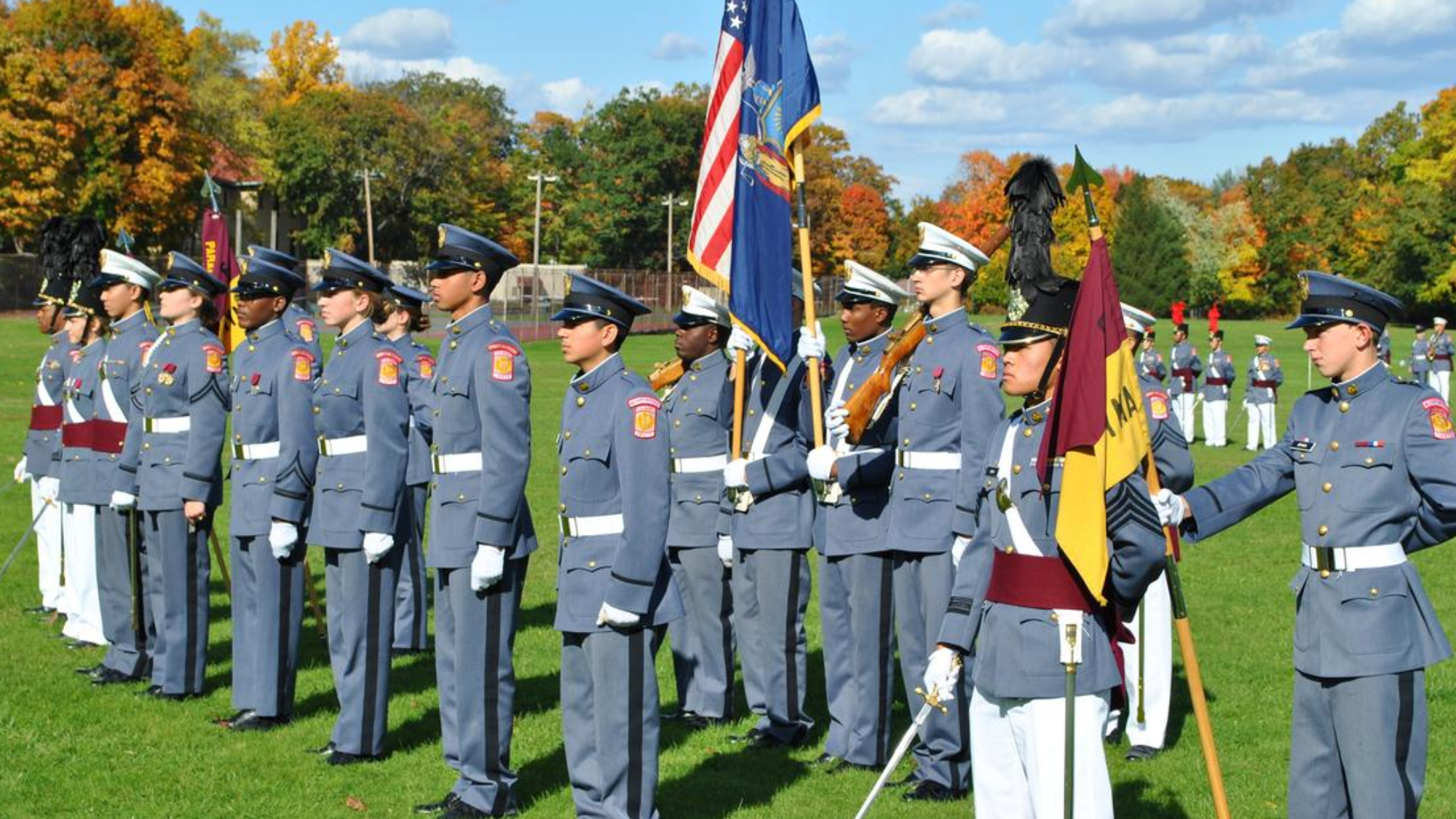Free Military Schools: A Path to Success for Troubled Youth

Wondering if military-style structure could be the turning point your struggling teenager needs?
When traditional approaches aren’t working and behavioral issues seem to escalate, many parents find themselves searching for programs that combine discipline with genuine support.
Military schools offer structured environments that can help troubled teens develop self-control, responsibility, and direction, but finding quality programs that don’t break the bank feels impossible.
This comprehensive guide cuts through the confusion by highlighting free and low-cost military-style programs available nationwide for troubled youth.
Let’s touch upon eligibility requirements, application processes, and alternative options that provide the structure and support your teenager needs without the financial burden that often accompanies such programs.
What Are Military Schools and How Do They Help Troubled Youth?
Military schools are educational institutions that use military-style structure, discipline, and training methods to help students develop character and academic skills.
These schools combine traditional classroom learning with military protocols like uniforms, scheduled routines, physical training, and leadership responsibilities.
For troubled youth, military schools provide the consistent structure many teens crave but resist at home.
Are There Truly Free Military Schools for Troubled Youth?
The reality is that most military schools are private institutions that charge significant tuition fees, often ranging from $15,000 to $50,000 annually.
Truly “free” military schools are extremely rare and typically don’t exist in the traditional sense. However, this doesn’t mean options are completely out of reach for families facing financial challenges.
- Many military schools offer substantial scholarships, need-based financial aid, or payment plans that can dramatically reduce costs.
- Some state-funded programs, military-connected scholarships, and nonprofit organizations provide assistance specifically for at-risk youth.
- Additionally, certain government programs and military family benefits may help cover expenses, making these schools more accessible than they initially appear.
List of Free Military Schools for Troubled Youth

Here’s a realistic overview of military-style programs available at reduced or no cost for troubled youth:1.
1. National Guard Youth ChalleNGe Program
The National Guard Youth ChalleNGe Program offers at-risk youth aged 16-18 the opportunity to earn their high school diploma or GED while participating in a structured military-style program.
The program helps teens build leadership skills, improve academic performance, and develop physical fitness. It aims to provide a fresh start for troubled teens by fostering discipline, responsibility, and positive life skills.
-
Location: Nationwide, with centers in various states across the U.S.
-
How to Apply: Contact your local National Guard armory for eligibility and application details. More information is available on the official National Guard Youth ChalleNGe Program website.
2. Florida Youth Challenge Academy
The Florida Youth Challenge Academy is a state-run program aimed at helping troubled teens aged 16-18. The program focuses on education, life skills, leadership, and physical fitness while helping students earn their high school diploma or GED.
Teens are taught how to manage their behavior, improve their academic performance, and prepare for life after graduation.
-
Location: Pensacola, Florida
-
How to Apply: Apply through the Florida Youth Challenge Academy website or by contacting the program office directly for eligibility and application details.
3. Oklahoma Youth Challenge Program
The Oklahoma Youth Challenge Program is a free, state-run initiative that provides military-style training, education, and leadership skills to troubled youth.
Participants are given the opportunity to earn their high school diploma or GED while building life skills, physical fitness, and personal responsibility. The program aims to give teens the tools they need to turn their lives around.
-
Location: Oklahoma City, Oklahoma
-
How to Apply: Applications can be submitted through the Oklahoma Youth Challenge website, or interested teens can contact the program directly for more information on eligibility and the application process.
4. Texas Youth Challenge Academy
The Texas Youth Challenge Academy offers troubled teens the opportunity to earn their high school diploma or GED while participating in a military-style program.
The program provides a structured environment where teens develop leadership skills, improve their academic performance, and focus on fitness and personal growth. It aims to help participants become responsible, disciplined, and well-prepared for the future.
-
Location: Several locations across Texas
-
How to Apply: Parents or teens can apply online or by contacting the Texas Youth Challenge Academy directly for more information on eligibility and the application process.
5. New York Military Academy
The New York Military Academy is a state-funded program that offers troubled teens a chance to turn their lives around through military discipline, academic tutoring, and leadership training.
The program helps students develop the skills needed to succeed both academically and personally. Teens are also taught how to improve their behavior and work towards earning their high school diploma.
-
Location: Cornwall-on-Hudson, New York
-
How to Apply: Interested teens and their parents can apply through the New York Military Academy website or contact the program office for more information on how to apply.
6. California Cadet Corps
The California Cadet Corps is a military-style program designed for middle and high school students. It helps teens develop leadership skills, improve physical fitness, and boost academic performance.
The program is free and designed to help students build character, discipline, and a sense of responsibility. It also encourages personal growth and provides teens with valuable skills for their future.
-
Location: Throughout California, with units in several counties
-
How to Apply: Teens can apply through the California Cadet Corps website for more information about eligibility and the application process.
7. Wyoming Youth Challenge Program
The Wyoming Youth Challenge Program is designed to help troubled youth by providing military-style discipline, educational support, and life skills development.
The program gives teens the opportunity to earn their high school diploma or GED while learning important lessons in personal responsibility, leadership, and teamwork. It provides the structure and support needed to help teens make positive changes in their lives.
-
Location: Cheyenne, Wyoming
-
How to Apply: Interested teens and parents can contact the Wyoming Youth Challenge Program office or visit their website for detailed information on eligibility and how to apply.
8. Mississippi National Guard Youth Challenge Program
The Mississippi National Guard Youth Challenge Program offers a structured environment where at-risk teens can earn their high school diploma or GED.
The program combines military-style training, academic support, and leadership development to help teens become more disciplined, responsible, and prepared for their future. It aims to provide troubled youth with the skills they need to succeed in life.
-
Location: Camp Shelby, Hattiesburg, Mississippi
-
How to Apply: Teens can apply directly through the Mississippi National Guard Youth Challenge Program website or contact the program office for more information on eligibility and application procedures.
9. South Carolina Youth Challenge Academy
The South Carolina Youth Challenge Academy is a free, state-funded program that provides troubled teens with the chance to earn their high school diploma or GED while participating in a military-style program.
The academy focuses on academic improvement, life skills, leadership, and fitness. The goal is to help teens develop the discipline and character needed for a successful future.
-
Location: Various locations across South Carolina
-
How to Apply: Teens can visit the South Carolina Youth Challenge Academy website for information on how to apply, or they can contact the program office for eligibility requirements and enrollment procedures.
10. Georgia National Guard Youth Challenge Academy
The Georgia National Guard Youth Challenge Academy offers troubled teens the opportunity to earn their high school diploma or GED while undergoing military-style training.
The program focuses on leadership, physical fitness, and academic improvement, helping teens develop the skills they need to succeed. The academy provides a structured environment where teens can grow personally and academically.
-
Location: Fort Stewart, Georgia
-
How to Apply: Teens and parents can apply online via the Georgia National Guard Youth Challenge Academy website or contact the program directly for further information on eligibility and application procedures.
How to Apply to Free Military Schools or Programs
Applying to free military schools or programs can provide valuable educational and leadership opportunities. This guide will help you understand the steps involved and how to make the most of these programs.
- Research Available Programs: Contact local youth services, probation departments, and military recruiters to identify programs serving your area and teen’s specific needs.
- Gather Required Documentation: Collect academic records, medical history, legal documents, and financial information needed for most program applications and eligibility verification.
- Meet Eligibility Requirements: Verify age limits, residency requirements, academic standing, and behavioral criteria specific to each program before beginning the application process.
- Complete Application Process: Submit detailed applications including essays, references, and interviews while meeting all deadlines and providing accurate, honest information throughout.
- Undergo Background Screening: Expect comprehensive background checks, psychological evaluations, and family assessments as part of standard admission procedures for most programs.
- Prepare for Interviews: Schedule and attend required interviews with program staff, demonstrating genuine commitment to change and program participation goals.
- Submit Financial Documentation: Provide tax returns, income statements, and other financial records to determine eligibility for need-based assistance and program funding.
- Follow Up Consistently: Maintain regular contact with program coordinators, provide additional information promptly, and demonstrate continued interest in program participation.
What to Expect from a Military School or Boot Camp Experience

Understanding what your teen will encounter helps set realistic expectations and prepares both you and your child for this significant transition.
1. Daily Structure and Routine
Describe the daily routine, rules, and structure of a military school or boot camp environment where students wake at specific times, follow rigid schedules, and participate in physical training, academic classes, and character development activities.
Days typically begin before dawn with physical fitness, followed by structured meals, classroom instruction, military drills, study periods, and evening reflection time with strict lights-out policies.
2. Challenges and Growth Opportunities
Discuss the challenges teens might face including homesickness, physical demands, strict discipline, and peer pressure, while explaining how these programs are designed to support growth through mentorship, counseling services, and gradual responsibility increases.
Students often struggle initially with the loss of freedom and constant supervision but gradually develop resilience, self-discipline, and leadership skills.
3. Parental Involvement and Communication
Explain how parents can stay involved in the process and monitor their child’s progress through scheduled visits, phone calls, progress reports, and family therapy sessions when available.
Most programs provide regular updates on academic performance, behavioral improvements, and areas needing continued attention while offering guidance on supporting your teen’s transition back home.
Is a Military School the Right Option for Your Child?

This decision requires careful consideration of your teen’s specific needs, your family situation, and the long-term goals you hope to achieve.
1. Assessing Your Child’s Suitability
Offer guidance on how parents can assess if this type of program suits their child’s needs by evaluating their response to structure, ability to handle physical challenges, and willingness to accept authority.
2. Weighing Benefits and Drawbacks
Encourage parents to weigh the pros and cons, considering factors like the child’s specific behavioral issues, existing mental health conditions, family dynamics, and the program’s therapeutic versus punitive approach.
3. Seeking Professional Guidance
Suggest consulting with counselors, therapists, or educational consultants to make the best choice for your family’s unique situation and your teen’s individual needs.
Conclusion
Finding the right program for your struggling teenager requires patience, research, and realistic expectations about available options.
While completely free military schools are rare, numerous government-funded programs, scholarships, and community resources can provide the structure and support your teen needs without an overwhelming financial burden.
Need help choosing options for your struggling teen? Share your specific situation in the comments below and connect with other parents facing similar challenges.
What programs have you considered, and what questions do you still have about military schools or alternative interventions? Let’s support each other in finding the best path forward for our teens.






